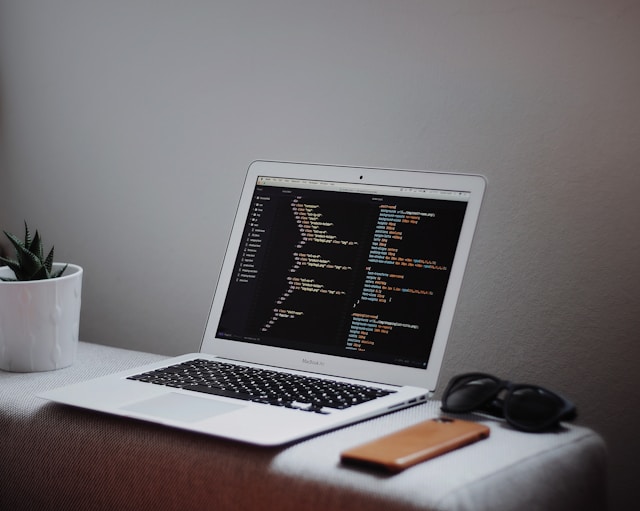Best Ways to Learn R Programming
Admin - March 1, 2023

R is a powerful programming language that is widely used for data analysis, machine learning, and statistical computing. If you're interested in learning R, there are several approaches you can take to get started. In this blog post, we will cover the best ways to learn R, including specific examples, study techniques, and resources.
Online courses
Online courses are a great way to learn R. They offer structured learning, interactive exercises, and often come with a certificate of completion. Some popular platforms for online R courses are Coursera, edX, and DataCamp.
For example, the Data Science Specialization on Coursera by Johns Hopkins University is an excellent course that covers all aspects of data science, including R programming, statistics, and machine learning. Similarly, the HarvardX Data Science Professional Certificate on edX is a comprehensive program that teaches R programming, data visualization, and statistical inference.
Books
Books are another excellent resource for learning R. They offer in-depth explanations, code examples, and practical exercises. Some popular books for learning R are "R for Data Science" by Hadley Wickham and Garrett Grolemund, "Data Analysis with R" by Tony Fischetti, and "The Art of R Programming" by Norman Matloff.
For example, "R for Data Science" is an excellent resource for anyone who wants to learn R for data analysis. It covers topics such as data visualization, data wrangling, and data analysis using the tidyverse package.
Flashcards
Flashcards can help you memorize syntax, commands, and concepts, and reinforce your understanding of the language. Here are some specific examples below.
Shameless plug: Flashcard Lab is a Google Sheets add-on that allows you to customize the study material to your liking, is simple and easy to use. You can add material that is relevant to you and your study style to help you learn R. Try it out for free (mobile app too).
Syntax and commands
One of the most important things to learn when studying R is syntax and commands. Flashcards can help you memorize the syntax and commands of R, making it easier for you to write code.
For example, you could create flashcards that have a command or function on one side and the syntax on the other side. Here are some examples:
Command: sum(), Syntax: sum(x)
Command: str(), Syntax: str(object)
Command: class(), Syntax: class(object)
Data structures
R has many data structures that you need to understand to work with data effectively. Flashcards can help you memorize the different data structures and their properties.
For example, you could create flashcards that have a data structure on one side and its properties on the other side. Here are some examples:
Data structure: vectors, Properties: homogeneous, one-dimensional, ordered
Data structure: matrix, Properties: homogeneous, two-dimensional, ordered
Data structure: data frame, Properties: heterogeneous, two-dimensional, ordered
Statistical concepts
R is widely used for statistical computing, and it's important to understand statistical concepts to use R effectively. Flashcards can help you memorize statistical concepts and their definitions.
For example, you could create flashcards that have a statistical concept on one side and its definition on the other side. Here are some examples:
Statistical concept: correlation, Definition: a measure of the linear relationship between two variables
Statistical concept: hypothesis testing, Definition: a statistical method used to test a hypothesis about a population parameter
Statistical concept: regression analysis, Definition: a statistical method used to model the relationship between a dependent variable and one or more independent variables.
Online communities
Online communities are a great way to learn R and get help with coding problems. Websites like Stack Overflow and Reddit have active communities of R users who can help answer questions and provide guidance.
For example, the RStudio Community is an excellent online community for R users. It has a wide range of topics, including R programming, data science, and machine learning. The community is very active, and there are always people available to help with coding problems or provide guidance on learning R.
Practice coding
The best way to learn R is by practicing coding. Start by working on small projects and gradually move to more complex ones. You can find datasets online or create your datasets to work on. This cannot be stressed enough as watching lectures and practicing flashcards can only get you so far.
For example, if you're interested in data analysis, you could start by analyzing a dataset of your favorite sports team's performance over the years. You could calculate the team's win-loss ratio, analyze trends, and create visualizations.
Attend workshops and conferences
Attending workshops and conferences is a great way to learn R and meet other R users. Many conferences have workshops that teach R programming and data analysis.
For example, the useR! Conference is an annual conference for R users that features workshops, talks, and networking events. Attending conferences like this can help you learn new techniques, meet other R users, and gain inspiration for your own projects.
-------------------------------------------------------------
Learning R takes time and practice. But with the right resources, techniques, and dedication, anyone can learn R and start using it for data analysis, machine learning, and statistical computing. So, choose the resources that work best for you and start your journey of learning R today!